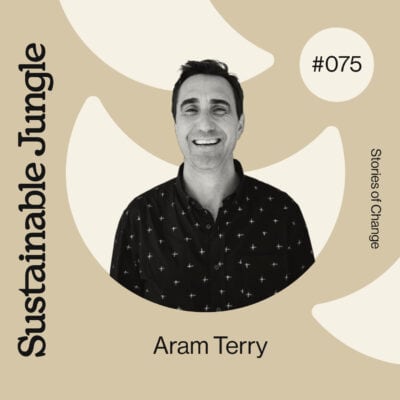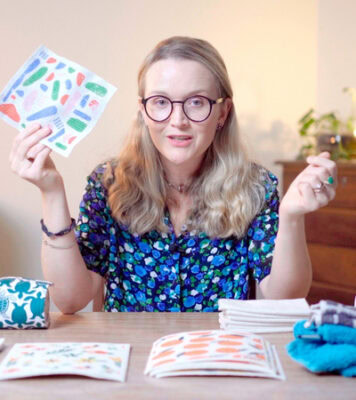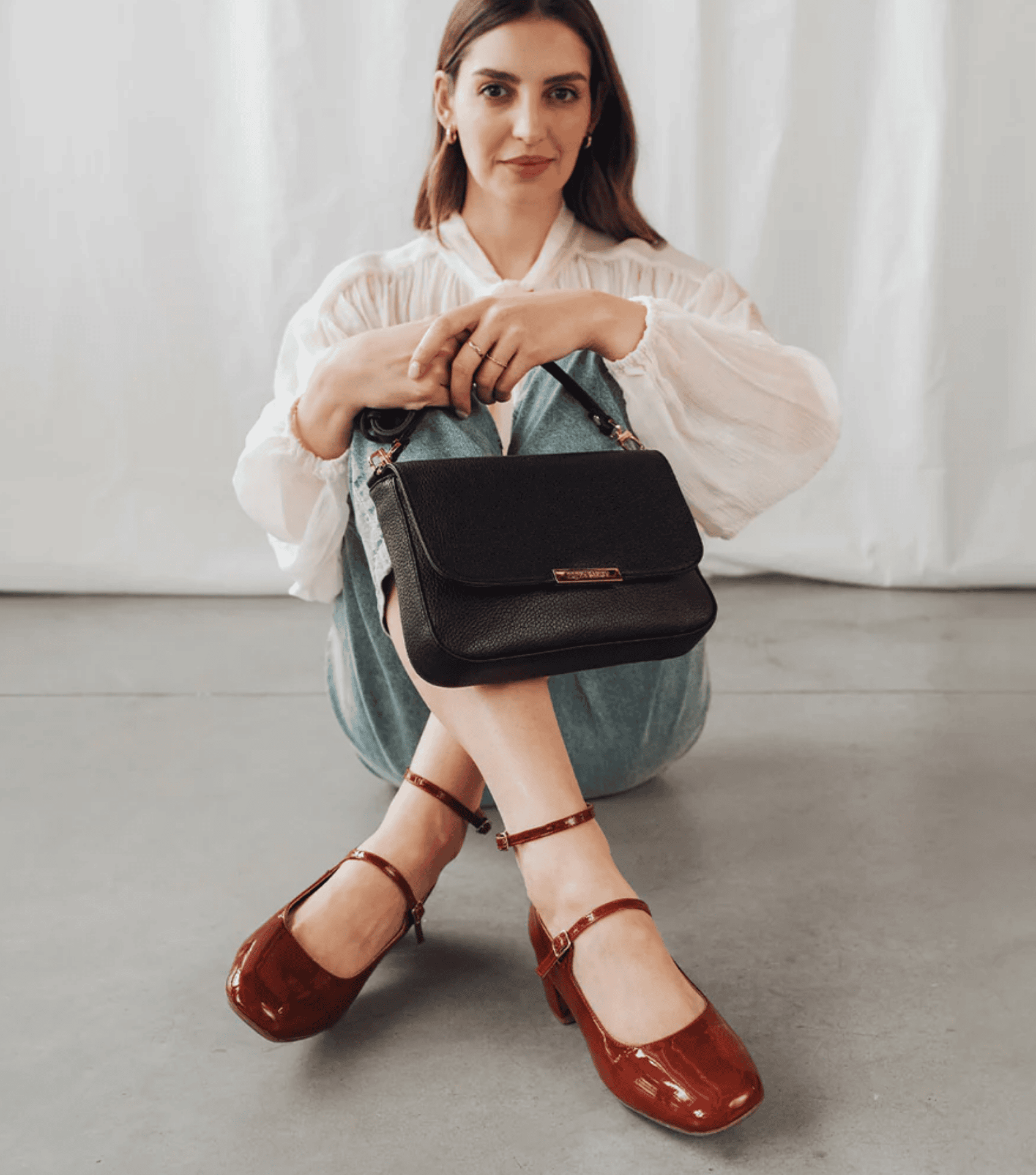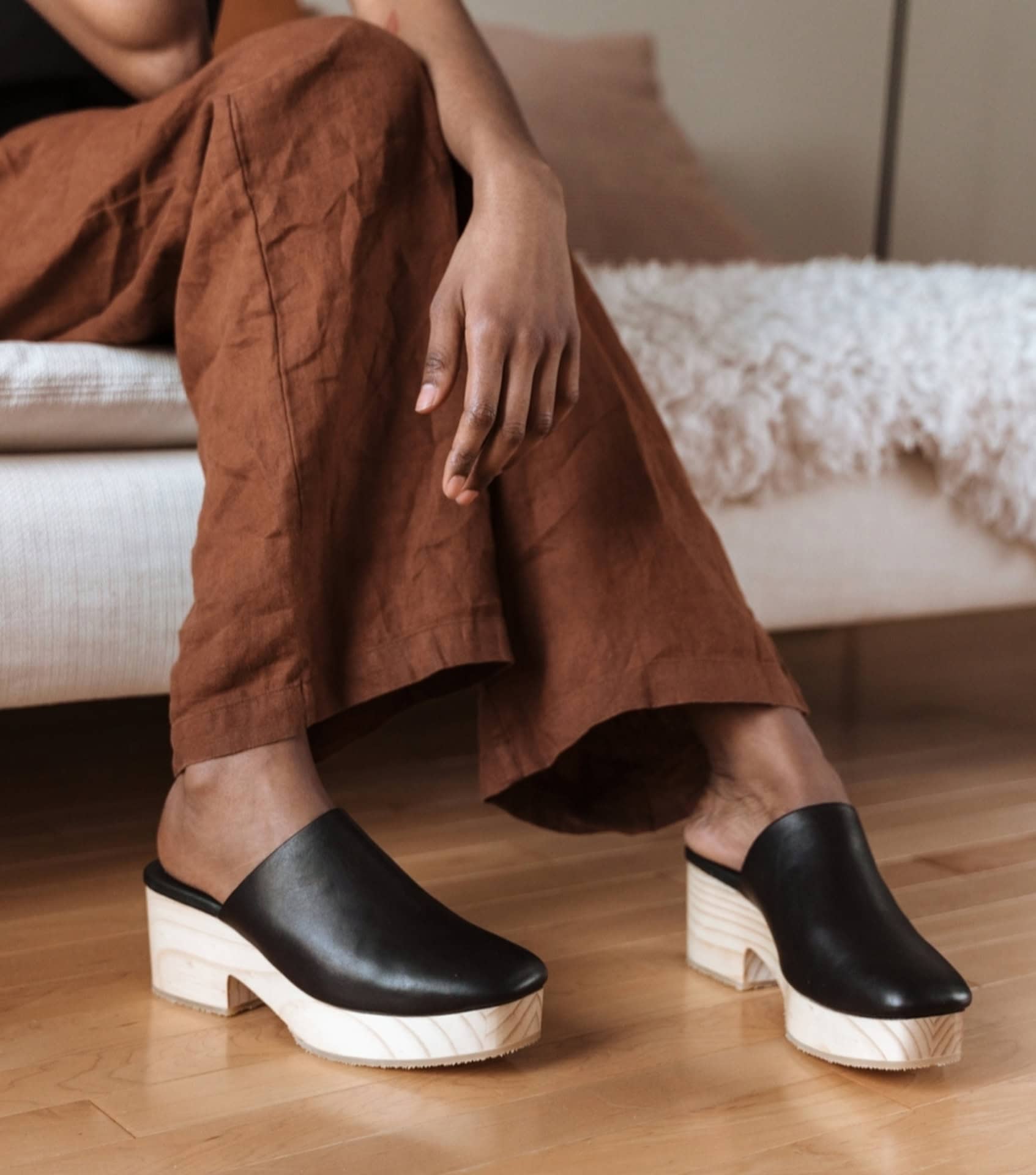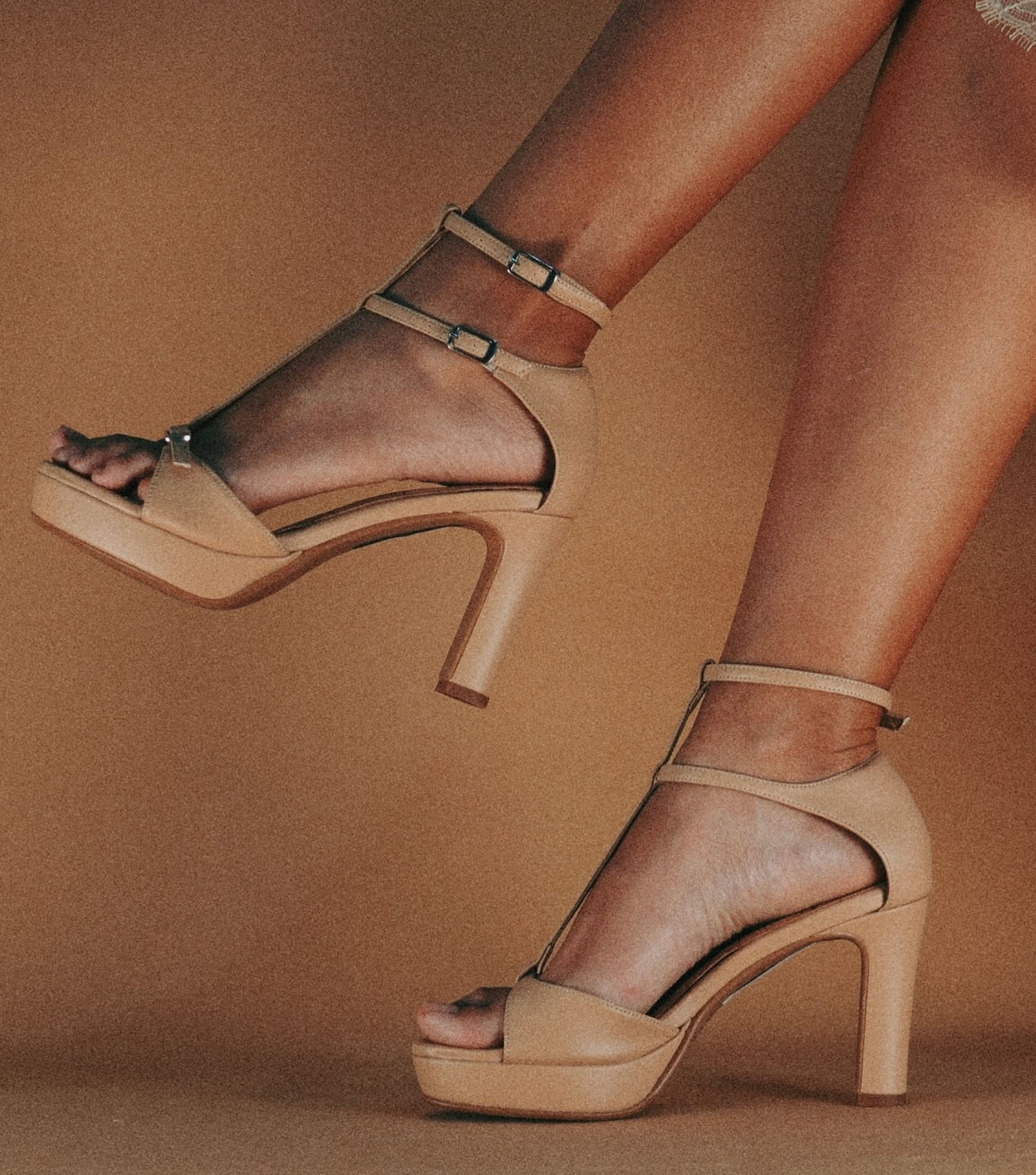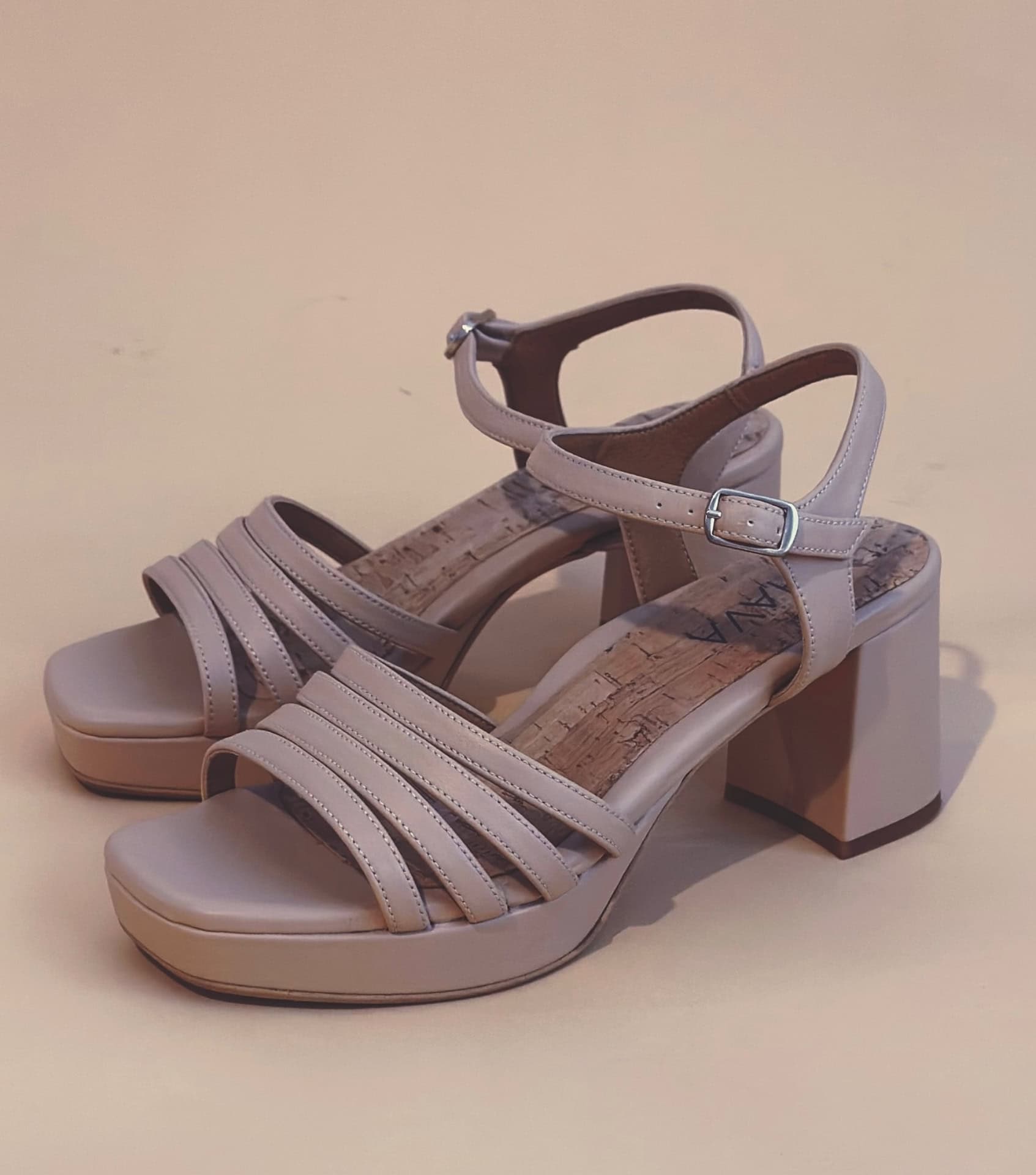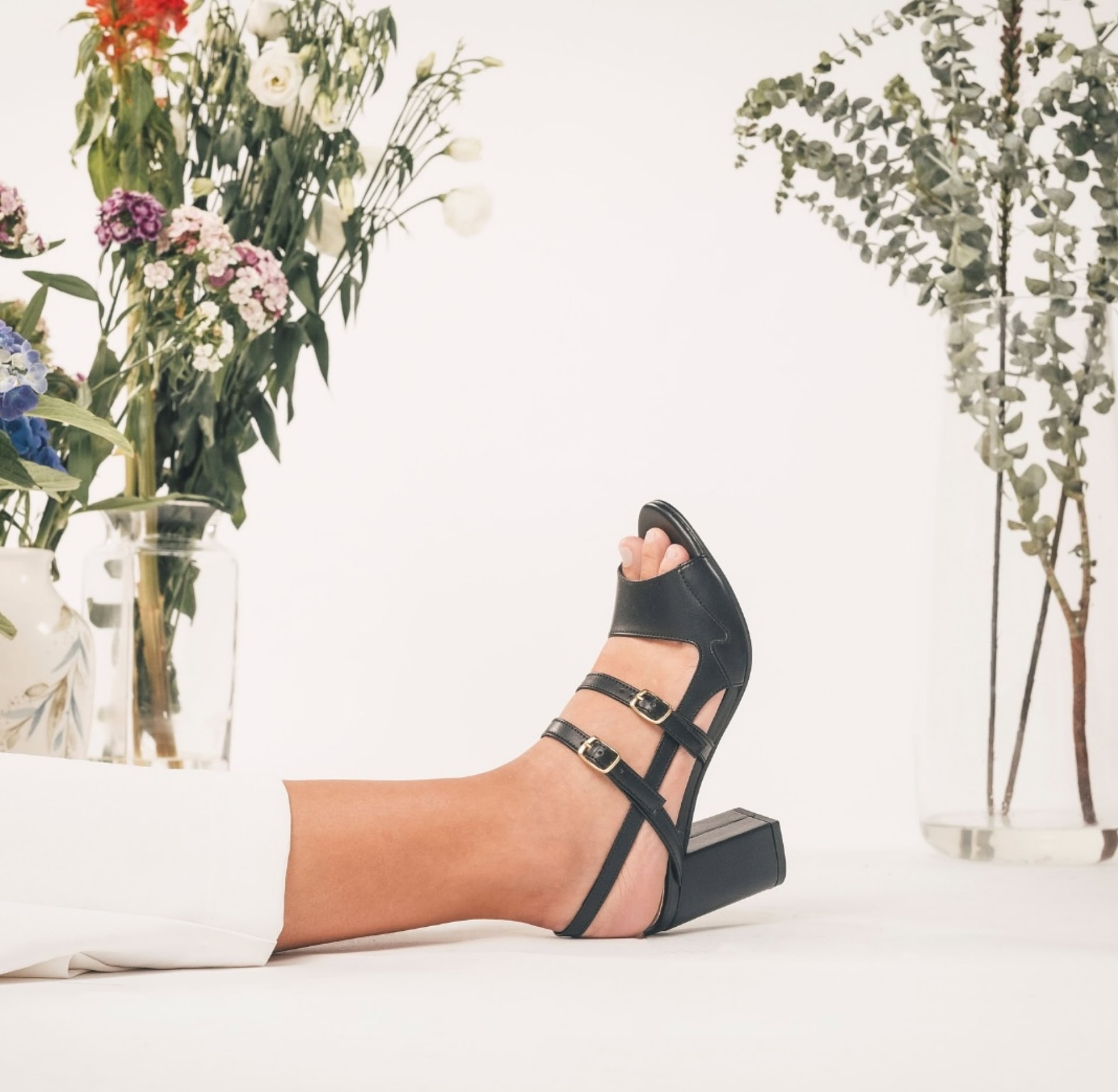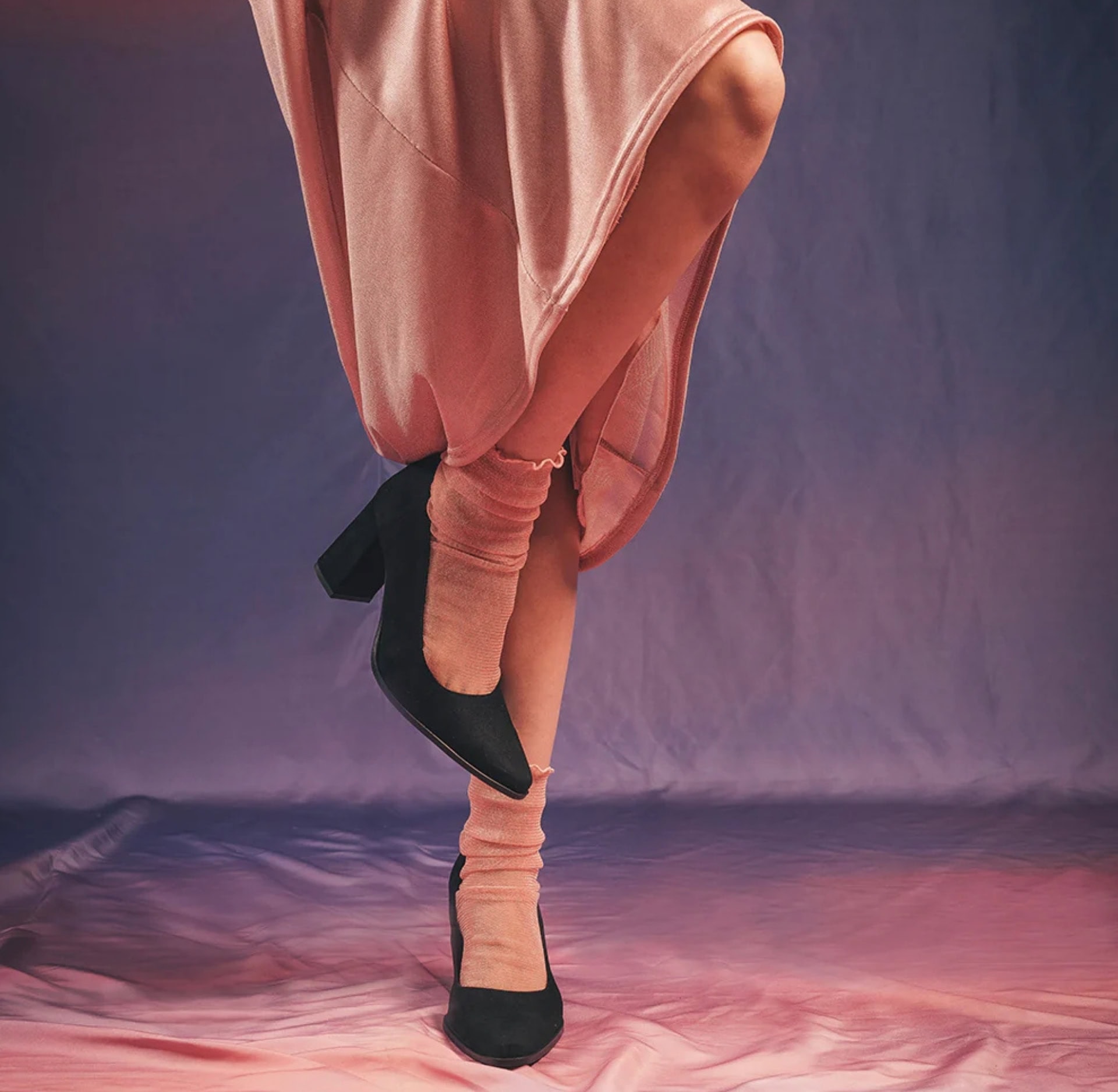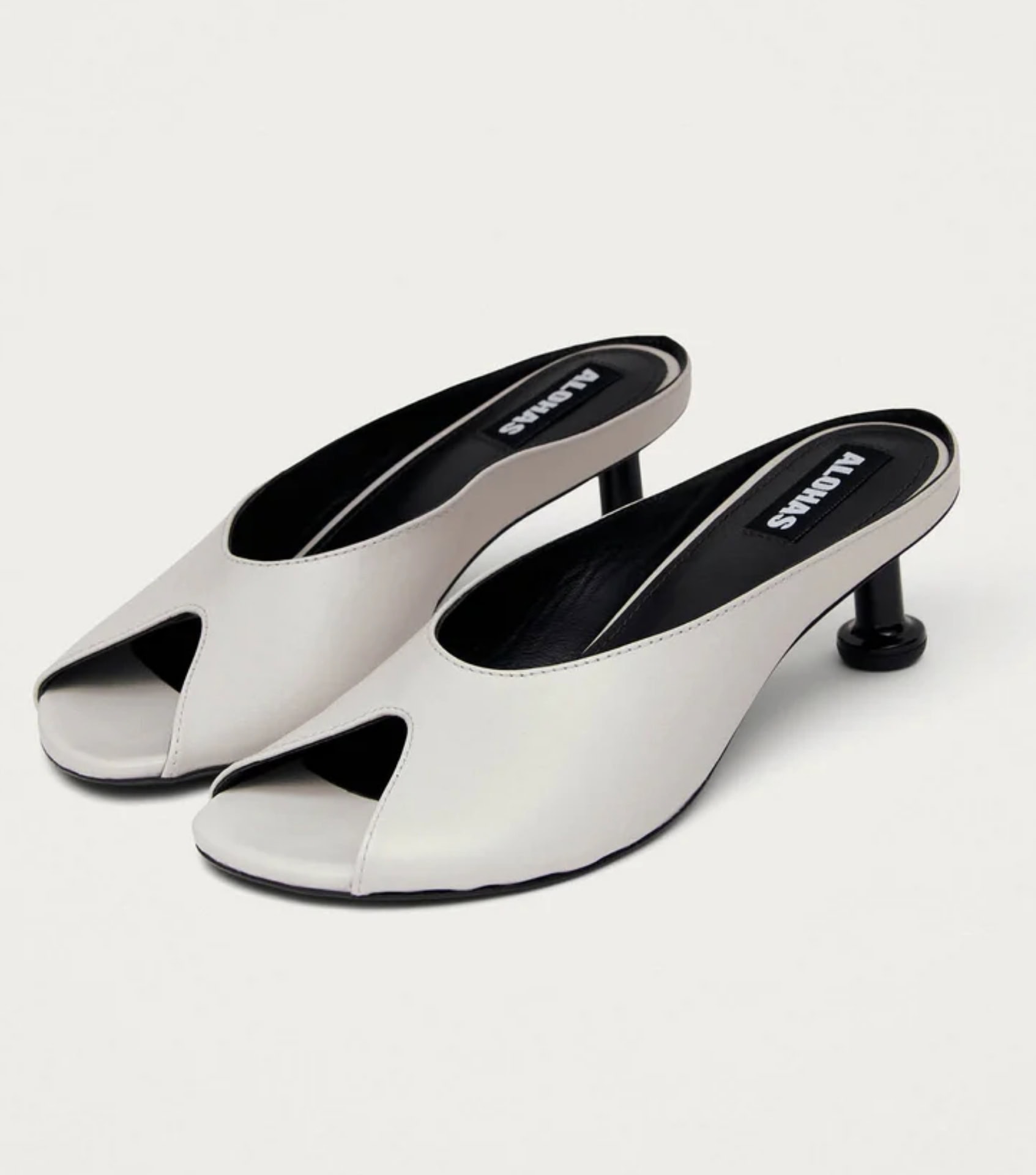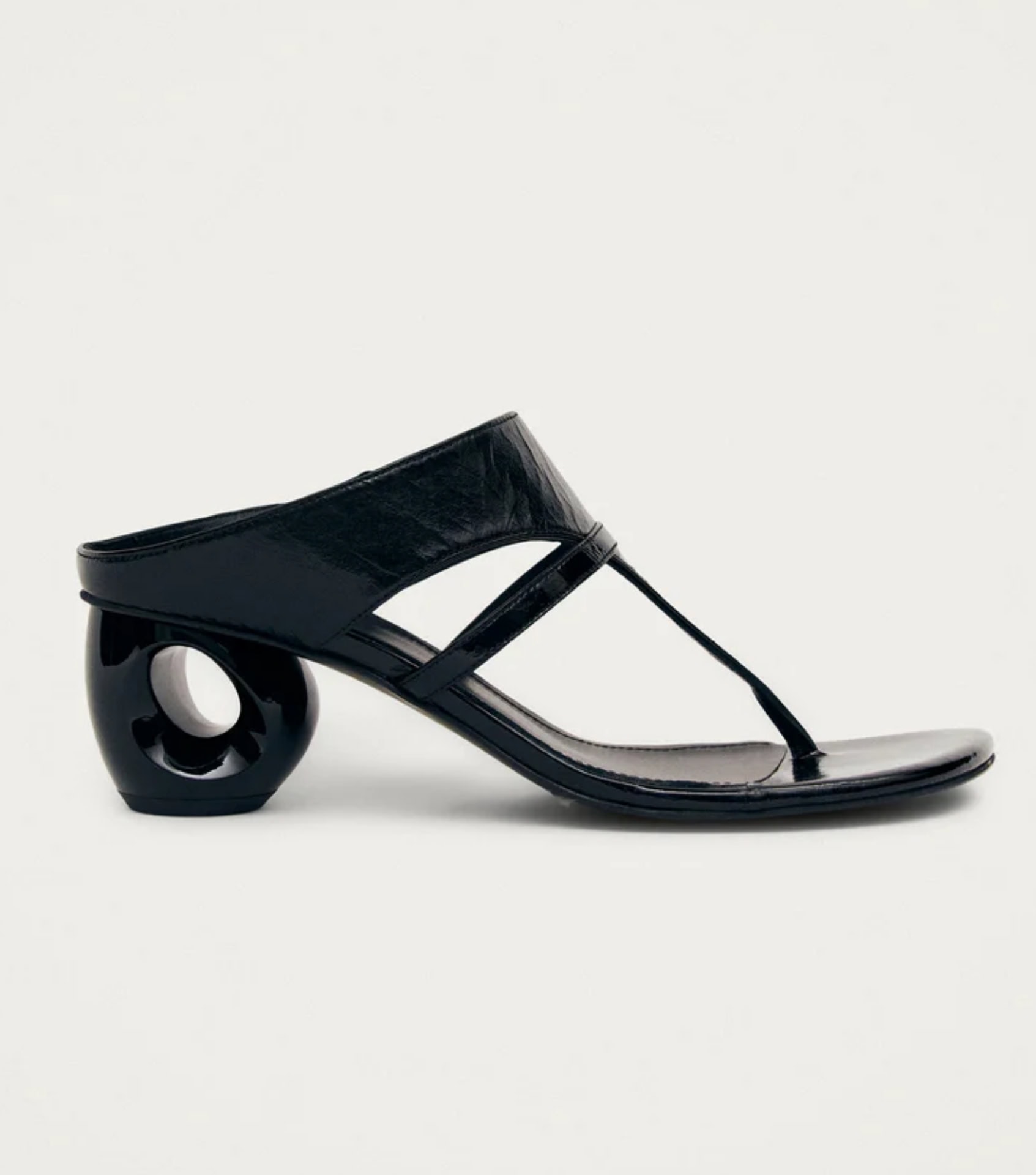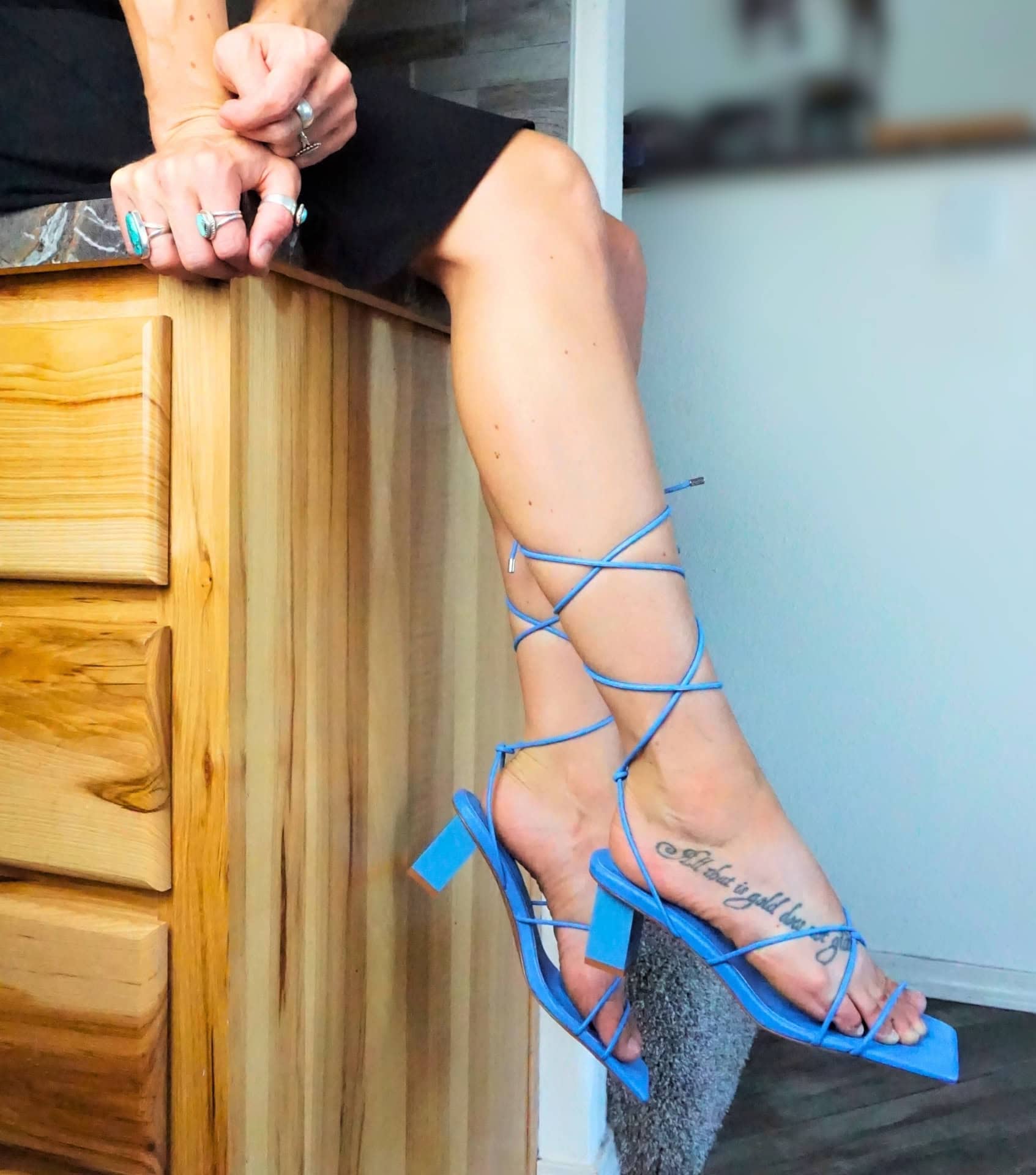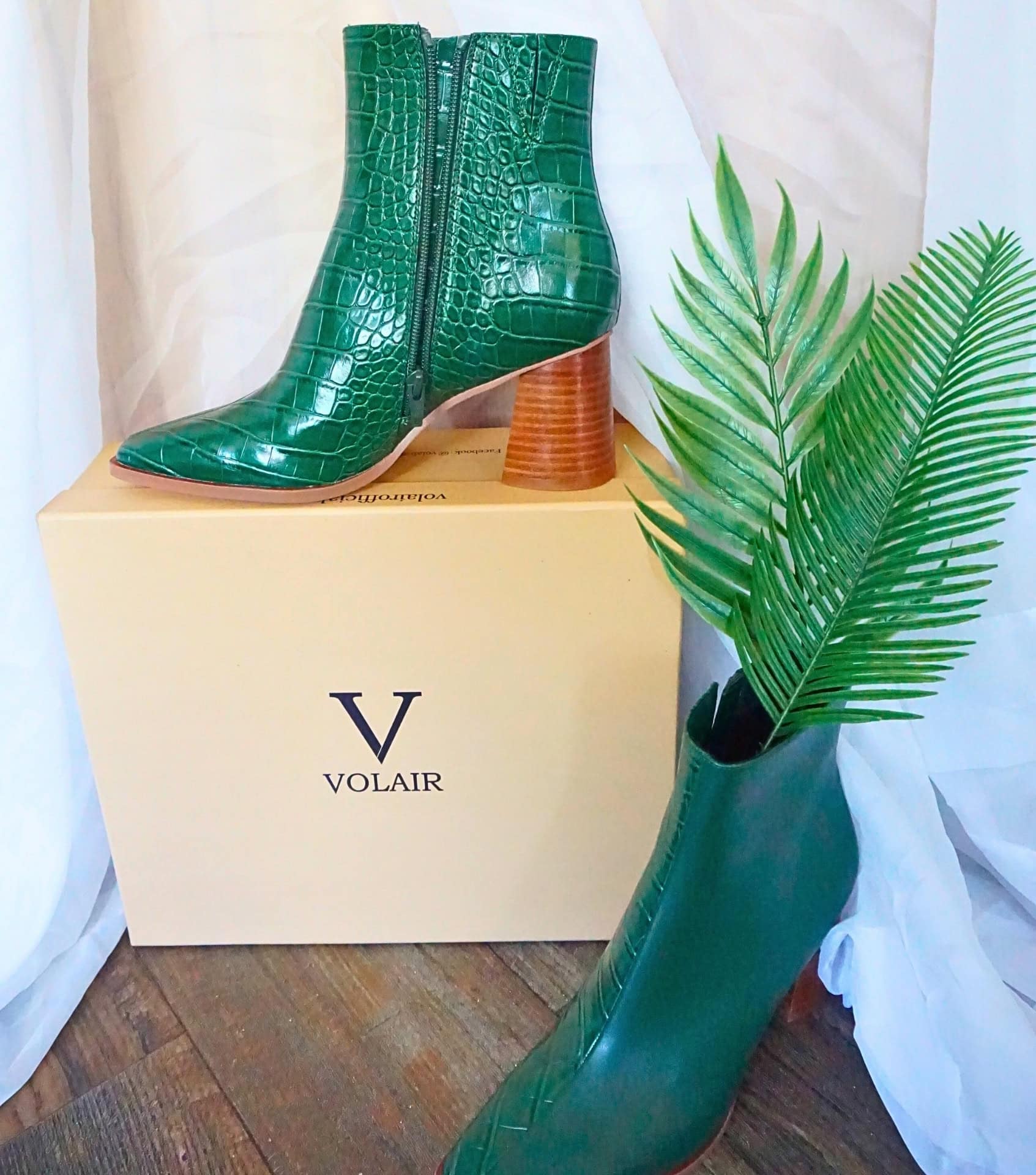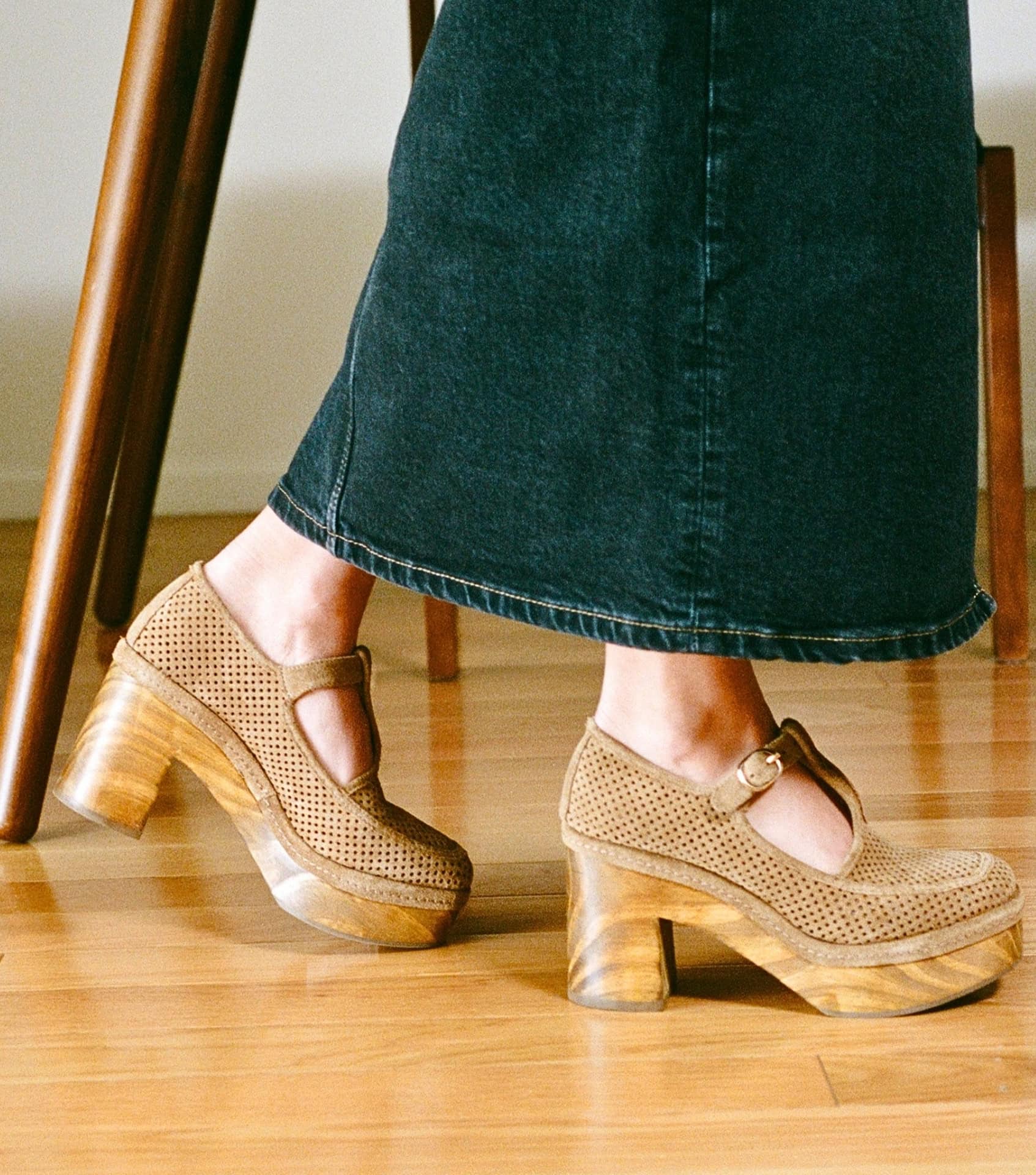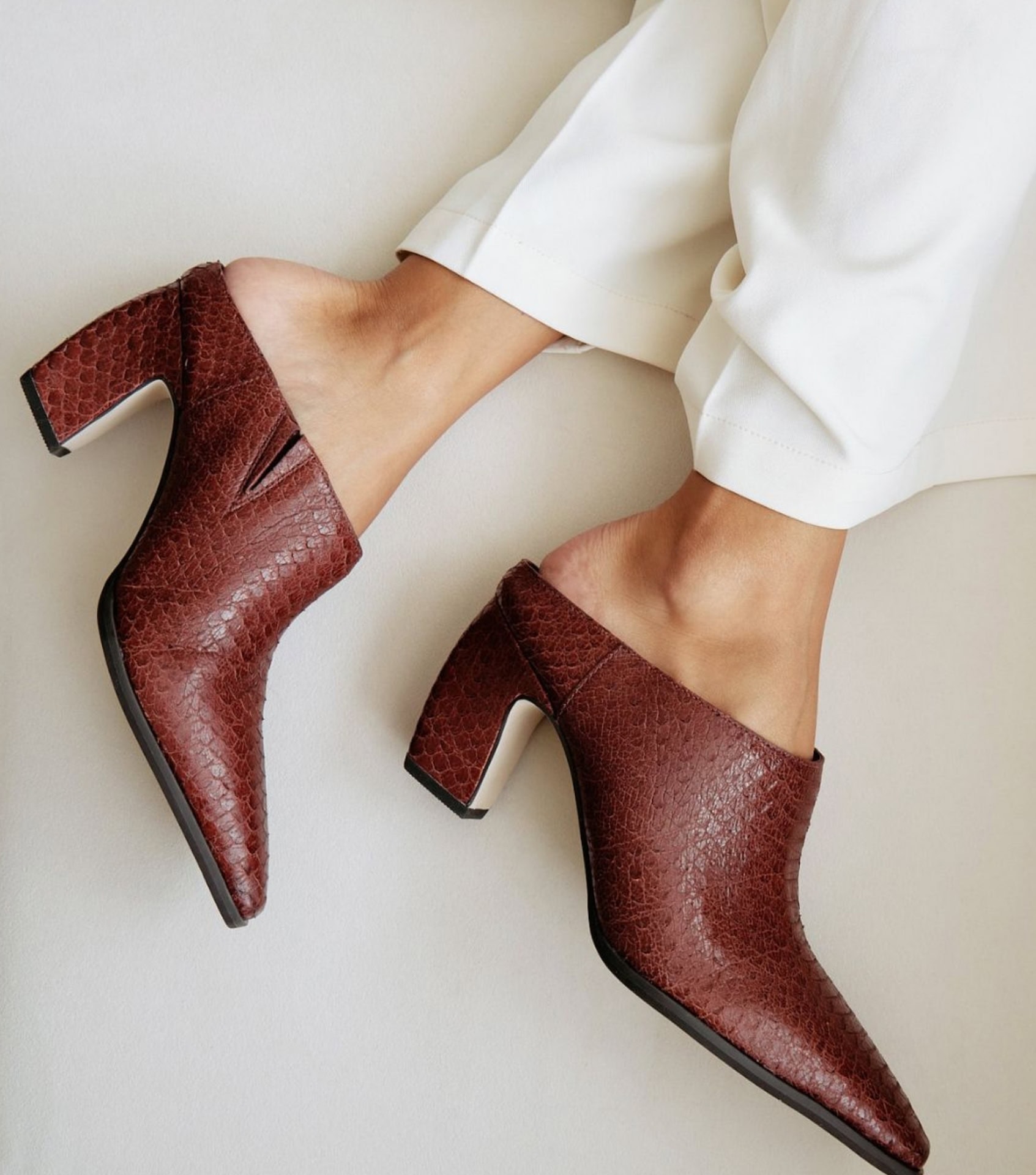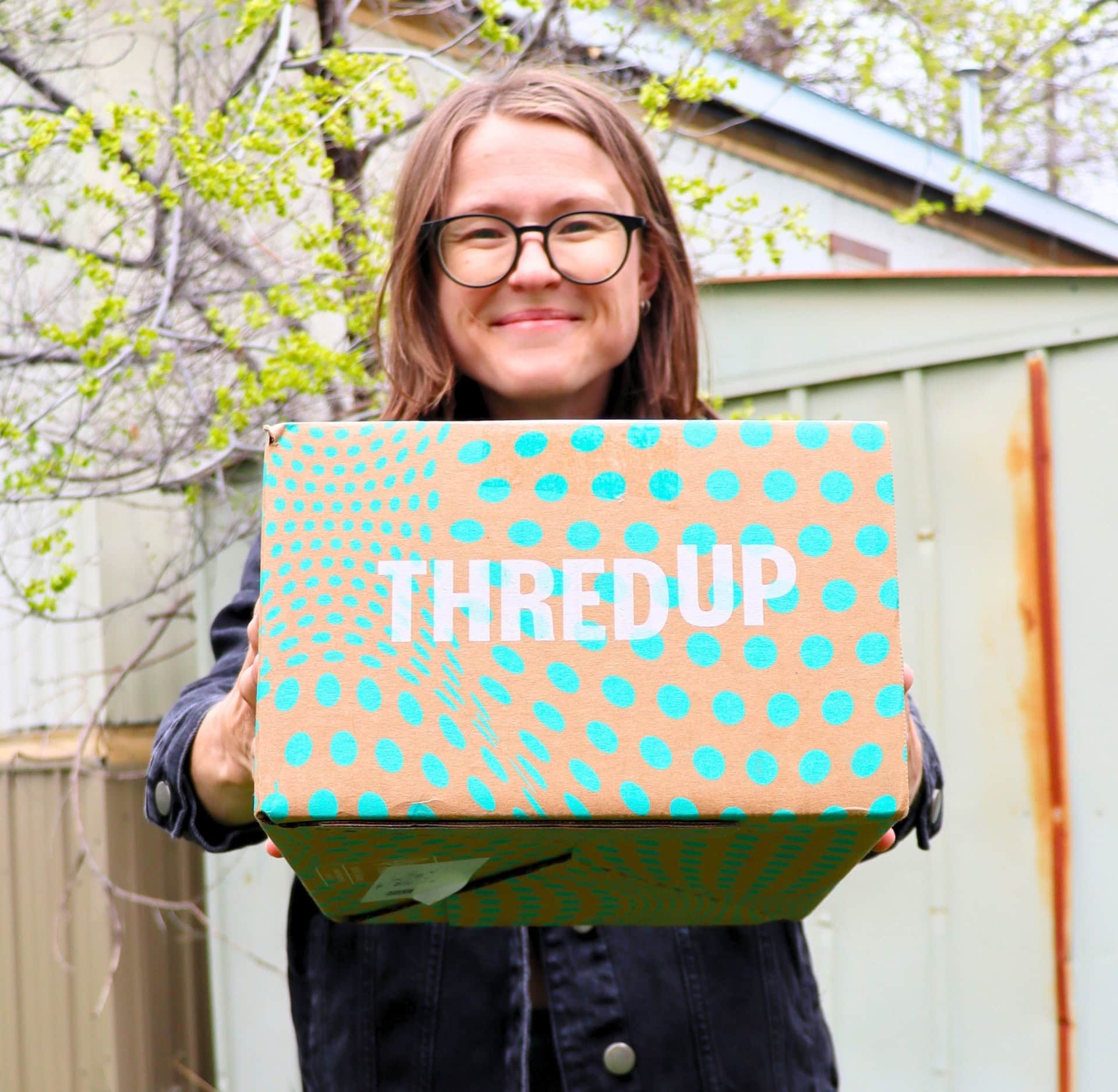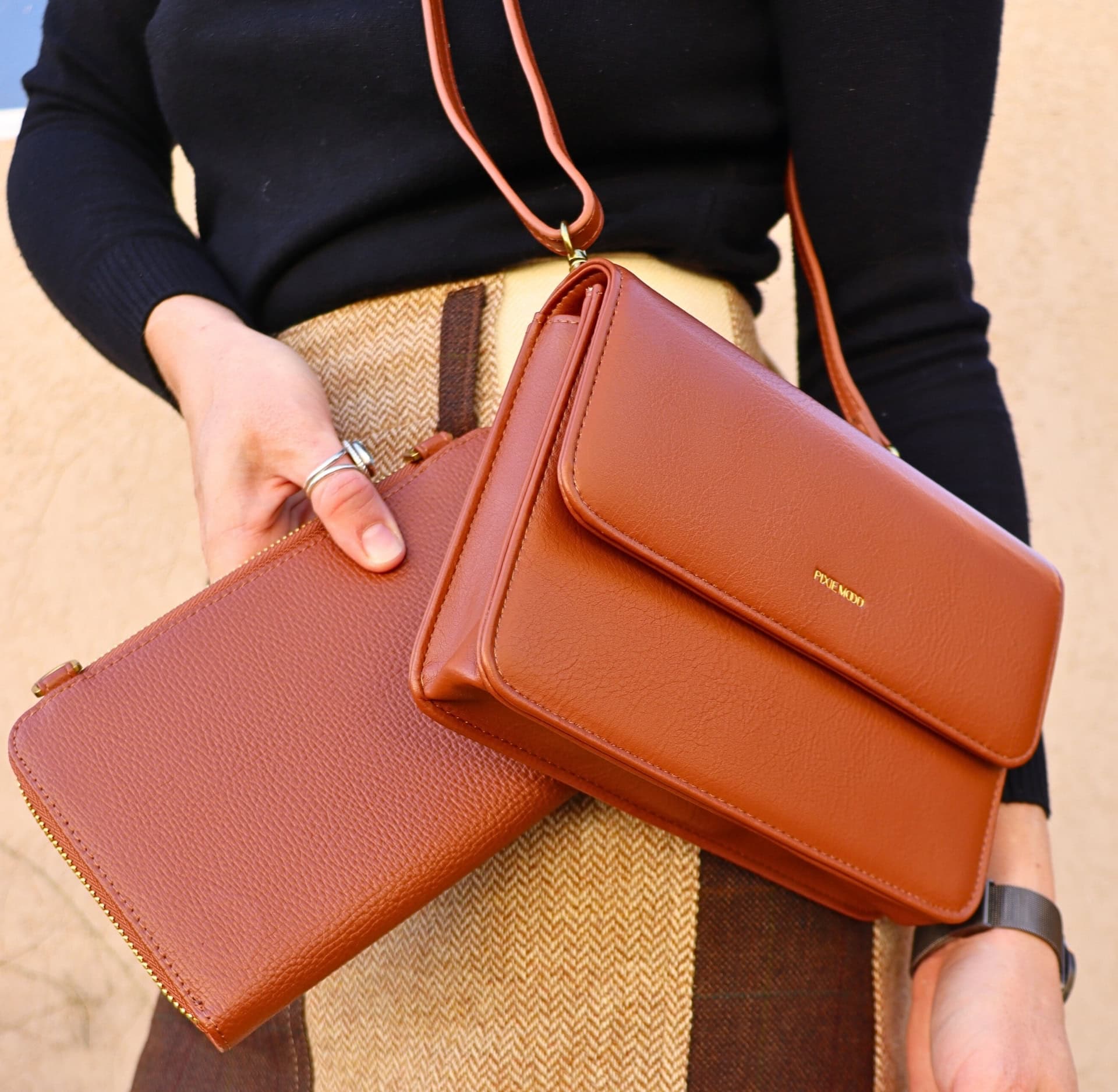We should be keeping our heels, heads, and standards high. Which is why dressing up with ethically made, sustainable heels should be the only way to elevate your style.
Why choose to support sustainable brands when buying heels and pumps?
Here’s a small but non-exhaustive selection of very good reasons:
- The footwear industry is no stranger to exploitation, forced labor, and unsafe working conditions.
- Traditional footwear produces more emissions than more sustainable options.
- Add in conventional leathers from brands who don’t ask questions and you get animal cruelty, too.
So with that in mind, we’re making like pair of 7” high heels and sharing the top brands we’ve fallen head over heels for. In searching for the best brands for this list, we’ve looked predominantly for use of responsible materials and ethical labor.
But as you, our readers, have told us, a deeper view of brands and their sustainability credentials is important to avoid greenwashing, and to help you shop according to your values. So we now use our Brand Rating System to rate brands (who choose to opt in) on a wide range of criteria including things like climate impact and circularity. Look out for the rated heels brands on this list who have given us much more information on their operations.
We independently research all featured brands and we ask them to confirm their claims. In many cases we personally review recommended products. This post contains affiliate links which means we may earn a commission if you buy something. Learn more here.
Our Top Picks For Ethical Heels
Poppy Barley crafts kitten heels, Mary Janes, sandals, mules and clogs. They use predominantly Leather Working Group (LWG) certified leather and regularly audit their suppliers. Poppy Barley has been rated on their sustainability credentials by us—find the full rating here.
NAE offers a wide range of vegan heels made from innovative materials like Piñatex, cork fabric, apple leather, and recycled PET (sometimes blended with corn). They manufacture in Spain and Portugal, paying workers well above the legal minimum.
Alohas make high heels (kitten heels, strappy sandals, mules, and pumps) using an on-demand production model to reduce unnecessary consumption. Materials include recycled polyester, and LWG-certified leather.
Index: Sutainable Heels & Pumps
- Poppy Barley Jump to brand
- Bhava Jump to brand
- NAE Jump to brand
- Alohas Jump to brand
- Volair Jump to brand
- Matisse Jump to brand
Poppy Barley
Ethical Sourcing
Raw materials have been sourced ethically with people and planet in mind.Handcrafted
Products have been made by hand, typically by an artisan or group of artisans.Recycled materials
Some or all products are made with recycled materialsThoughtful packaging
Product packaging has been designed and created with the end of life outcome in mind and can be easily recycled or composted.Woman Owned
This brand is owned by a woman or a group of women.Female-founded and based in Edmonton, Canada, Poppy Barley offers beautifully designed and made footwear, bags, and accessories.
Their heels are crafted primarily from Leather Working Group (LWG) certified leather and the collection features timeless styles designed for both elegance and all-day wear. As far as heels go, they currently offer Mary Janes, sandals, kitten heels, mules and clogs.
Poppy Barley offers a trade-in program and repairs to promote circularity and longevity. As a Certified B Corp, they regularly report on their sustainability progress. They disclose Tier 1 suppliers on their website and they directly audit these suppliers at least every two years.
Heels are packaged in certified organic cotton dust bags, FSC-certified boxes, and FSC-certified tissue paper printed with soy-based inks. Generally speaking, their footwear comes highly rated by customers and they give back through their Future Fund.
Poppy Barley has been rated by Sustainable Jungle. Find the full rating here.
Bhava
Price Range: $245–$275
Bhava believes we need to get creative when it comes to finding alternatives to leather. You won’t find any products of animal-origin in their range of sandals, flats, heels, and boots. When it comes to sustainable heels, their styles include pumps, mules, loafers, strappy heels, and sandals.
If you’re looking for nude heels, Bhava is all about soft neutrals—like the LOLA Platform Sandal, sure to become your favorite fun and flirty block heels. Bhava “doesn’t produce a single pair of shoes without a thorough NYC test drive for comfort and durability”, which says a lot considering the lack of comfortability in most heels.
Bhava uses solid wood heels, cork insoles, organic cotton linings, and Italian-made vegan leather that is free of PVC, phthalates, chrome, azo-dyes, formaldehyde, and aromatic amines.
Making use of the region’s long history of handmade shoes, Bhava works with artisans in Alicante, Spain. A few are made in India, by the country’s first woman-owned footwear company. Many of their materials are imported from Italy and their cork from neighboring Portugal.
NAE
Price Range: $170-$227
NAE’s (AKA “No Animal Exploitation”) range is absolutely huge, encompassing not just heels, but sandals, sneakers, sustainable boots, flats, and more, for both men and women.
A huge range of low-impact materials means a huge range of vegan fabrics, including Piñatex, cork fabric, apple leather, recycled PET (sometimes blended with corn), organic cotton, and traditional PU and PLA vegan leather.
Some materials bear OEKO-TEX certification.
As a Spanish brand, NAE chooses to manufacture locally in Spain and Portugal and NAE pays workers 51% above the minimum legal requirement. NAE visits these factories 2-3 times annually.
The brand offsets their emissions through a product in Mozambique.
Alohas
Price Range: $170-$290
Founded in Hawaii and now based in Spain, Alohas offers stylishly designed footwear, bags, and accessories with a focus on slow fashion. Extra slow in that they use an on-demand production model to reduce unnecessary consumption. This involves launching new products at 30% off to build orders before production. Once items are in stock, they can then be received within 24-48 hours.
Their heel range is made up of kitten heels, strappy sandals, mules, and pumps and are made using a mix of recycled polyester, polyurethane, and LWG-certified leather.
They design in Barcelona and manufacture in Alicante through small-scale facilities they visit regularly. Alohas prioritizes local sourcing, ethical production, and has a zero-tolerance policy for discrimination across their supply chain.
Volair
Price Range: $96–$167
Volair offers a small but staple range of ethical heels including low heel sandals, heeled boots, and two mid-height heels with different ankle strap designs. Testing two of these affordable heels had us feeling at the height of luxury.
Volair’s eco-friendly high heels all feature a bio-based vegan apple leather or corn leather upper combined with heels that are either made of recycled materials or bio-based polymers that replace the traditional ABS material. This polymer is BPI compostable certified and Vincotte OK Compost Industrial/Home certified.
The uppers are also PETA, REACH, and USDA Biobased certified.
All heels are manufactured in Asia, with a manufacturer that aligns with ethical business practices, and they ensure all suppliers have the proper certifications.
Volair encourages a pre-order production model to prevent the waste associated with excess stock. They also use recycled and recyclable packaging and offset their shipping emissions through Carbonfund.org.
My Personal Review of Volair’s Heels:
“First, I tried out the Reverie Sandal, which Volair calls the “perfect combination of style, comfort and poise”—and I can’t help but agree. For such a minimalist heel, I was impressed by how stable they are, attributed to both the chunky, modest-height 2.4” heel and contoured footbed. While it took me a few tries to initially figure out how best to tie the ankle straps, I caught on quickly and appreciate how the long ties can be styled in a variety of ways.
If you want a pair of extra comfortable heels, I recommend the Harley Boots. Featuring a unique but still understated bi-pattern design that’s half faux croc skin and half matte faux leather, these heeled ankle boots are not only incredibly easy to pair with a variety of outfits, but I also found them comfortable enough to walk long distances in, making them a modern essential.”
Review by Amber McDaniel, SJ’s Head of Content
Matisse
Price Range: $50–$200
Matisse is one of the most popular heel brands in the sustainability sphere, and it’s easy to see why. From beach to street, Matisse provides artisanal, ethically-made mules, boots, flats, sandals, sneakers, and vegan heels.
Leather, suede, and EVA (a rubber-like plastic polymer) are common materials, combined with rubber outsoles and sometimes wood heels. Whenever possible, recycled leather and textiles are used. They also offer vegan heels made of PETA-certified PU vegan leather, not PVC.
All manufacturing partners are family-owned and operated and are regularly audited to ensure workers are treated fairly.
Their leather tannery partners use technology to minimize watershed waste, but we haven’t received a response yet with more details on how they process their leather so we’d suggest sticking to the vegan designs.
Vegan Leather Heels Vs "Ethical" Leather Heels
When it comes to ethical shoe brands, heels are high on the list of modern essentials, especially for women. But the animal leather vs vegan leather debate is a tricky one.
For some, the animal welfare concerns make vegan leather the clear winner. For others, the environmental impact and limited durability of synthetic materials is a big no-no.
Fortunately, vegan leather can be the foundation for eco-friendly heels, especially when it’s made from plant-based materials like Pinatex, cork, and apple leather. And, while it’s still made from fossil fuels, polyurethane (PU) contains significantly fewer chemicals, and isn’t composed of materials that can wreak havoc on our hormone or endocrine system. It’s also far less toxic to soil and water and can even be recycled.
For heels that will be worn for decades to come, natural ethical leather provides the most durable option but keep in mind:
- Recycled leather is clearly the best of the animal leathers given it doesn’t involve any meaningful new material impact.
- Otherwise, its best to look for vegetable-dyed or at least chrome-free leather, as it’s free of many of the toxins and heavy metals typically found in leather.
- Traceable leather that’s sourced as a byproduct from the food industry is an arguably better option.
- LWG certification is essential when the leather is not recycled.
To make your new heels even more ethical, first have a look for a secondhand pair from one of the many online thrift stores. But when an upgrade is necessary, however, consider supporting one of these ethical heels brands.

